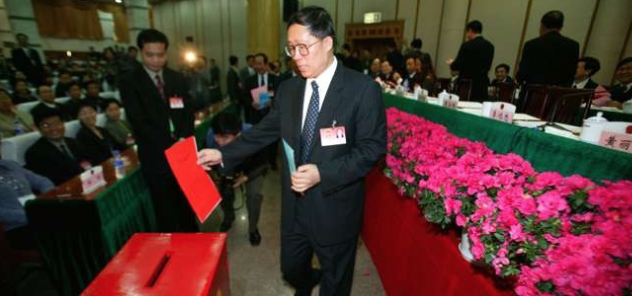Next year’s 19th Party Congress is expected to bring a major restructuring of China’s top leadership, including the replacement of 11 of the 25 Politburo members and five of the seven men in its elite Standing Committee. The event is seen as a strategic opportunity for General Secretary Xi Jinping to further consolidate power by promoting allies. “As the political atmosphere heats up,” Alice L. Miller recently wrote for China Leadership Monitor, “the shadows of leadership politicking under way in the party’s internal networks may be tantalizingly cast into the open press.” One case in point is a recent round of regional reappointments, including that of former Hubei Party secretary Li Hongzhong to the same role in Tianjin following the removal of acting Party chief and mayor, and now corruption suspect, Huang Xingguo. As South China Morning Post’s Jun Mai explains, the role makes Li a likely entrant to the Politburo next year, despite the lingering shadow of a controversial and subsequently censored 2010 incident in which he responded to a reporter’s question by grabbing her voice recorder.
“Chinese cadres’ appointments are decided by the party, not the people,” said Chen Daoyin, an associate professor at the Shanghai University of Political Science and Law. “The seizure of the digital recorder looked terrible to the public, but that might be seen as a gesture of loyalty to the party.”
[…] In recent years, Li Hongzhong has been among the provincial chiefs most trusted by the central leadership. He was one of only two provincial chiefs to participate in the drafting of a hallmark document on comprehensive reforms in 2013, according to state media.
Last year, under his watch, Hubei courts were trusted with staging the trials of close allies of former security tsar Zhou Yongkang, the most senior official probed for corruption since the founding of the People’s Republic in 1949.
But Chen said Li still remained outside Xi’s innermost circle of trust.
[…] “He is a man accepted by all factions … there are people closer to Xi but who were not chosen for the [Tianjin] position,” Chen said. “It shows that despite Xi’s strong hold on control over cadres’ appointments, he still has to make compromises.” [Source]
In a survey of pre-transition jockeying at The Financial Times on Monday, Lucy Hornby writes that Xi “is surprisingly weak in the patronage networks that underpin factional politics in China,” making appointments now all the more crucial. She quotes political commentator Zhang Lifan, who says that Xi “needs to crack down on the powerful factions and make everyone listen to him […;] to set a few examples and have something on everybody so that they will be obedient and agree to his personnel arrangement.”
At Reuters, meanwhile, James Pomfret and Benjamin Kang Lim reported on Friday that one of the major China news stories of recent weeks—the violent suppression of resurgent protests in the village of Wukan—was driven by Guangdong Party chief Hu Chunhua’s efforts to protect his chances of rising to the Politburo Standing Committee next year. Hu has long been regarded as a possible contender for top national leadership, but South China Morning Post reported last year that his prospects appeared to be fading.
A source close to senior officials in Guangdong said Hu opted to take a harder line on Wukan to minimize risks to his prospects and any perception of weakness from a repeat of the climb-down in 2011.
He took that option after leaders in Beijing made clear they wanted it suppressed, said a second source with central leadership ties.
[…] “There can be no noise pollution,” a senior Chinese official in Beijing told Reuters. “Threats to stability must be nipped in the bud.”
[…] For now at least, Wukan appears defeated.
“We have no weapons; how could we fight back? People aren’t going to stand up anymore. We’re finished,” said a villager who brought drinks and snacks to three Reuters journalists as they hid out while police were searching for journalists in the village. [Source]
Read more on the hunt for journalists, for whom local authorities reportedly offered a $3,000 bounty, and on Li Hongzhong, Hu Chunhua, and the looming 19th Congress, at CDT.







